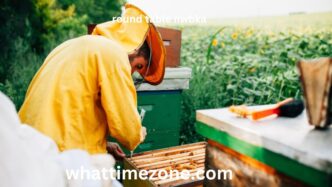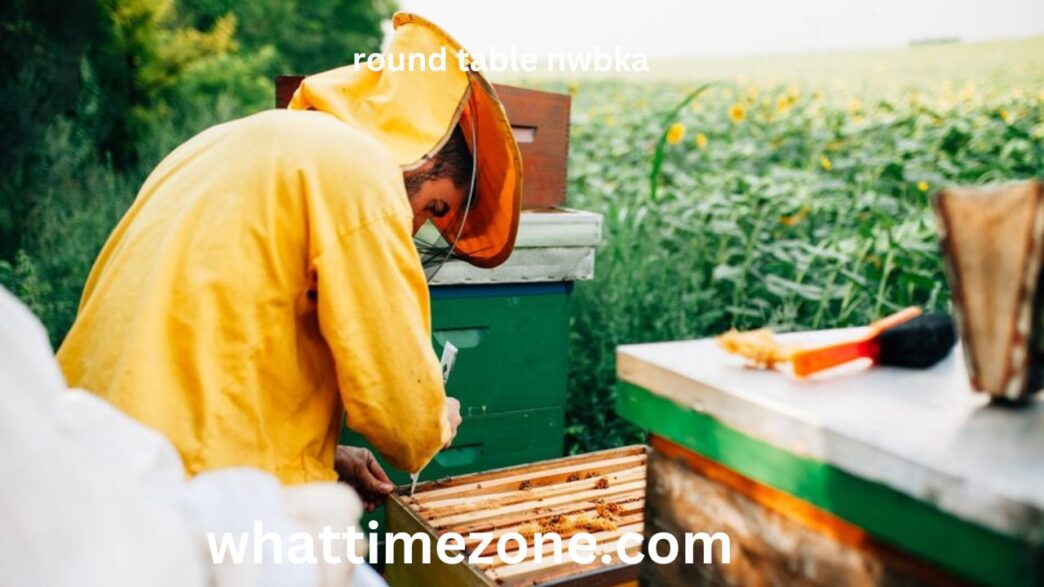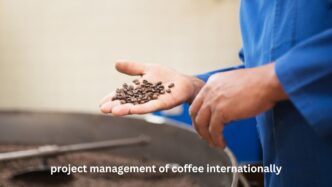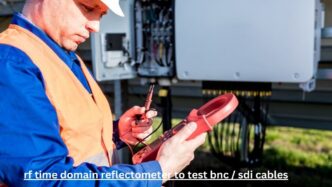The Round Table NWBKA stands out as a cornerstone event organized by the Northwest Beekeepers Association (NWBKA). This gathering brings beekeepers together to exchange ideas, share experiences, and discuss innovative techniques in the art of beekeeping. By focusing on education and community building, the Round Table NWBKA fosters collaboration and strengthens ties among both novice and experienced beekeepers.
What Is the Round Table NWBKA?
The Round Table NWBKA is an annual or periodic event hosted by the Northwest Beekeepers Association. It serves as a platform for members to discuss key topics, ranging from hive management to pollinator health. Participants benefit from shared expertise and an opportunity to connect with others passionate about beekeeping.
Significance of the Round Table NWBKA
1. Fostering Community
The event creates a supportive space where beekeepers can build relationships and learn from one another’s experiences.
2. Promoting Education
Beekeepers enhance their skills through workshops, presentations, and hands-on demonstrations during the round table discussions.
3. Addressing Challenges
By tackling pressing issues such as bee population decline, participants explore strategies to overcome these challenges collectively.
4. Sharing Innovations
Beekeepers discuss the latest tools, techniques, and technologies that can improve hive management and productivity.
5. Building Awareness
The event raises awareness about the importance of beekeeping and pollinator health in maintaining environmental sustainability.
Key Activities at the Round Table NWBKA
1. Workshops and Presentations
Experts and experienced beekeepers host sessions on topics like hive inspections, honey production, and pest management.
2. Open Discussions
Participants engage in collaborative discussions, where they share personal stories, challenges, and solutions in a relaxed environment.
3. Demonstrations
Live demonstrations provide practical insights into advanced beekeeping techniques, such as swarm capture and queen rearing.
4. Guest Speakers
Renowned researchers or industry professionals deliver talks on the latest trends and scientific advancements in beekeeping.
5. Networking Opportunities
The event allows attendees to connect with like-minded individuals, exchange contact information, and establish long-term collaborations.
Benefits of Attending the Round Table NWBKA
1. Knowledge Sharing
Beekeepers gain practical knowledge and advice from seasoned experts and peers.
2. Problem-Solving
Discussions at the event often address specific problems, offering actionable solutions for participants.
3. Encouraging Sustainability
The event emphasizes sustainable beekeeping practices, benefiting both the environment and bee populations.
4. Building Confidence
Novice beekeepers gain confidence by learning directly from experienced mentors in a supportive setting.
5. Staying Updated
Attendees stay informed about emerging challenges, scientific research, and best practices in modern beekeeping.
Topics Discussed at the Round Table NWBKA
1. Hive Management Techniques
Participants explore methods to maintain healthy colonies, prevent diseases, and optimize hive productivity.
2. Pollinator Health
Experts discuss the factors impacting pollinator health, such as pesticides, habitat loss, and climate change.
3. Pests and Predators
Effective strategies for controlling pests like Varroa mites and predators such as bears or hornets are key discussion points.
4. Seasonal Challenges
Beekeepers exchange tips for managing hives during challenging seasons, such as winter or drought periods.
5. Honey Processing
The event includes sessions on extracting, processing, and marketing honey while maintaining quality standards.
How the Round Table NWBKA Supports Novice Beekeepers
1. Learning Opportunities
New beekeepers benefit from step-by-step guidance on foundational practices like setting up hives and harvesting honey.
2. Mentorship Programs
The event connects novices with experienced mentors who provide personalized advice and encouragement.
3. Hands-On Training
Workshops and demonstrations offer hands-on experiences, helping new beekeepers develop practical skills.
4. Community Support
Novices feel welcome and valued in a supportive community that encourages questions and growth.
5. Access to Resources
Attendees gain access to educational materials, local suppliers, and recommended tools or equipment.
Challenges Facing Beekeepers Discussed at the Round Table NWBKA
1. Declining Bee Populations
Beekeepers discuss factors contributing to colony collapse disorder and explore ways to protect bee populations.
2. Climate Change
Shifting weather patterns impact nectar flow, hive health, and seasonal behaviors, prompting discussions on adaptive strategies.
3. Pesticide Exposure
Participants explore methods to minimize pesticide exposure and advocate for safer agricultural practices.
4. Habitat Loss
Attendees exchange ideas on creating pollinator-friendly spaces to mitigate the effects of habitat destruction.
5. Disease Management
Discussions focus on identifying, preventing, and treating common bee diseases like American foulbrood or nosema.
The Role of NWBKA in Supporting Beekeepers
1. Advocacy
The association advocates for policies that protect bees and promote sustainable practices in agriculture and urban development.
2. Education and Training
Through events like the Round Table NWBKA, the association provides valuable resources and learning opportunities for beekeepers.
3. Research Support
NWBKA collaborates with researchers to study bee health and share findings with the community.
4. Community Building
The association fosters a sense of belonging among members, creating a collaborative and supportive network.
5. Outreach Programs
Through outreach, NWBKA educates the public about the importance of bees and encourages community involvement.
Tips for Making the Most of the Round Table NWBKA
1. Come Prepared
Bring a notebook, questions, and an open mind to make the most of the sessions and discussions.
2. Participate Actively
Engage in conversations, ask questions, and share your experiences with other attendees.
3. Take Notes
Document key takeaways and ideas to implement them in your own beekeeping practices.
4. Network Strategically
Connect with experts, vendors, and fellow beekeepers to expand your network and access valuable resources.
5. Follow Up
After the event, reach out to new contacts or mentors to maintain connections and continue learning.
FAQs About Round Table NWBKA
What is the Round Table NWBKA?
The Round Table NWBKA is a collaborative event organized by the Northwest Beekeepers Association, fostering education and community among beekeepers.
Who can attend the event?
The event welcomes beekeepers of all skill levels, from novices to experienced professionals, as well as anyone interested in beekeeping.
What topics are covered during the round table?
Discussions include hive management, pollinator health, pest control, honey production, and sustainable practices.
How can novice beekeepers benefit?
New beekeepers gain practical knowledge, mentorship, and hands-on training, building confidence and skills.
Are there networking opportunities at the event?
Yes, the Round Table NWBKA offers excellent networking opportunities, allowing attendees to connect with experts and fellow enthusiasts.
How does the NWBKA support beekeepers year-round?
The association provides advocacy, education, resources, and community support to promote successful and sustainable beekeeping practices.
Conclusion
The Round Table NWBKA serves as a vital event for fostering collaboration, education, and innovation within the beekeeping community. By bringing together individuals passionate about beekeeping, this event promotes sustainable practices, addresses shared challenges, and strengthens community ties. Whether you are a seasoned beekeeper or just beginning your journey, the Round Table NWBKA offers invaluable opportunities to learn, connect, and grow.







